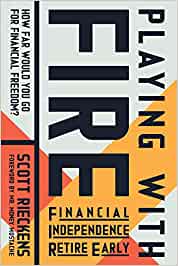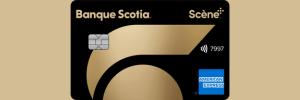
Hands up if you’ve ever set a New Year’s resolution that actually lasted beyond the end of January.
Now, you’re on the other side of a screen, so we can’t tell exactly how many of you have a hand in the air, but we’ll assume that not many of you stuck with it. Really though, it’s understandable. On January 1st, we’re excited. New year, new me.
But even though it’s a fresh start and a new opportunity to break a bad habit or two, and take a step in the direction of who you want to be, only 8% of resolutions actually last. So, don’t feel bad about dropping your resolutions. It happens to just about all of us.
Now, just because most New Year’s resolutions don’t last, that doesn’t mean yours have to suffer the same fate. It just means you need to take a different approach to your resolutions.
Make your goals realistic: if your salary is $40,000, you shouldn’t try to save $20,000 this year. You’re setting yourself up for failure. Instead, try to save 10-15%, or commit to paying off a specific piece of debt.
Set specific goals: don’t just say “I want to save more this year” or “I want to get out of debt”. Zero in on specific, achievable goals, like building a $3000 emergency fund, or paying off your credit card.
Plan the how, not just the what: so you want to save $5,000 this year. That’s great. But how will you get there? In addition to saving money, you’ll also need to stop spending to get there. Whether that means no more lattes, brown-bagging your lunch or skipping a night out every month, you need to figure out how you’ll hit your goals.
Develop milestones: in addition to your big goals, break them down into multiple milestones. Smaller milestones like putting $250 into your high-interest savings account or onto your credit card each month are easier to work with than larger ones. In addition to making your goals feel more feasible, you’ll also build momentum along the way.
Talk about it: tell your friends. Tell your family. Tell your coworkers. Let them know what your goals are, and rely on your inner circle to help keep you in check.
Give it 3 weeks: studies say that a it takes 21 days to build or break a habit, so before worrying about the whole year, start by focusing on getting through the first three weeks of 2021. Once you make it January 22nd, you should have adjusted to your new behaviour or goal, and you’re off the races from there.
Celebrate the small wins: for example, if your goal is to hit $5,000 in your TFSA this year, and you’re starting off with $50, be proud of yourself when you hit $1,000 and $2,500. It’s a huge deal to break into 4-digits, and to hit the halfway point. Give yourself a bit of love for sticking to your goals!
In addition to these seven tips, there’s one big thing to keep in mind: resolutions aren’t just for New Years. You don’t need to wait for December 31st or January 1st to kick a bad habit or try something new. A new year is a great chance to start fresh, but so is a new month, a new week, or even a new day. Whenever you realize a change that you want to make, whether with your finances or any other part of your life, make a plan to hit those goals and you set yourself up for success. You’ve got this.
If you liked this article, you’ll definitely like Hardbacon’s mobile app, which links to your banking and investing accounts, helps you plan your financial goals, budget, and invest better. The basic version of the app is free, but you can do more with Hardbacon Premium. As a loyal reader of our blog, you can get 10% off any Hardbacon Premium subscription. To take advantage of this promotion, use promo code BLOG10 when subscribing through our website.



















About The Author: Craig Sebastiano, guest writer
Craig Sebastiano is the managing editor at RateHub. He enjoys writing about investing, personal finance, and real estate.
More posts by Craig Sebastiano, guest writer